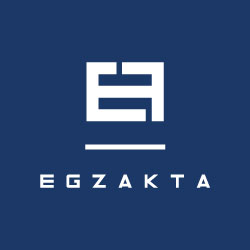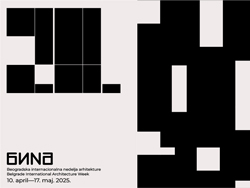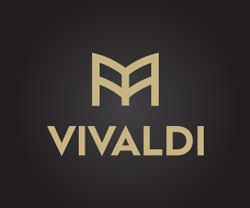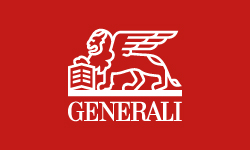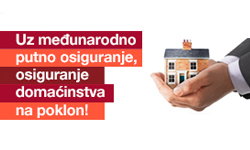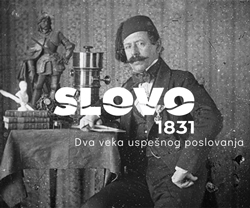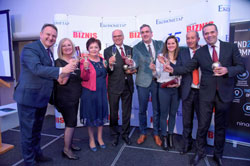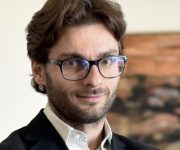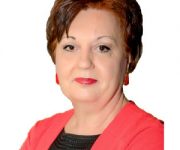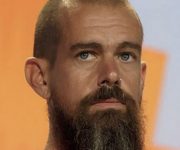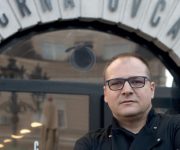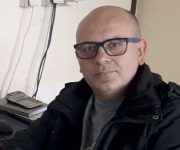Rivalry between operators is good for Serbia because it accelerates its growth and lowers the prices for five million users
Serbia is only one of almost 150 countries in the world where the Swedish company „Ericsson” is operating. This corporation being earlier a family and nowadays a multinational company may among other things be proud of the fact that more than thousand telecommunication (mobile and fixed) networks use its equipment, and that in two of five phone calls made worldwide over mobile phones, „Ericsson” is the third „participant“. In fact, this Swedish company with a tradition lasting for 129 years participates at the world market with app. 43 percent. The American „Motorola” is ranked second with less than 20 percent, the Finish „Nokia“ is ranked third…
The Serbian subsidiary company „Ericsson” d.o.o. recently celebrated a decade of its successful business operations with the Serbian Government, i.e. with the companies „Telekom Srbija” and „Telenor” (ex „Mobtel”) that deal with fixed and mobile telephony and telecommunications. The company had its largest development in Serbia in the field of the mobile network development, i.e. in the implementation of GSM, GPRS and EDGE. These are the second generation networks (2G i 2.5G), and since December 19th last year (you remember – Zdravko Čolić phoned to Koštunica „just to see him”) the 3G (third generation) network has been in commercial circulation as well. It enables its users video calls, quick (mobile) Internet, watching of TV programmes through mobile phones, listening to the music, watching of video clips and films, supervision of the important transport links and other multimedia contents. On that occasion Prime Minister Vojislav Koštunica said that the 3G technology opened new perspectives in telecommunications, new jobs, products and services in Serbia. This, however, occurred during the election campaign, but it’s true…
Lower prices
It is certain that the 3G network for Serbia from a technological point of view classifies us shoulder-to-shoulder with the most highly developed parts of world. That this is a rather serious business shows the fact that according to some data two years ago the value of the multimedia market on world level was assessed to be somewhat less than 20 billion euro and that in four years it should exceed 100 billion euro!
– A lot of things shall depend on the arrival of the third operator on the market of mobile telephony into Serbia and whether it shall develop only the GSM network or decide to follow an obligation of deploying 3G. The rivalry among operators is good for your country, because it shall speed up its development and reduce the prices to the end users. The subscribers – there are app. five million of them, may have the opportunity to consider various offers and choose what suits them most – explains Bo Andersson, President and CEO of „Ericsson” d.o.o in the interview for Magazin Biznis. He stressed the problem referring to the slowness of the legal regulations and emphasized the importance of the privatization approaching the telecommunication market. If it all had been better regulated and more defined, stressed Andersson, Serbia would have developed faster than up to now.
20.000 patents
The industrial portfolio of „Ericsson” contains more than 20.000 patents. One of the more important dates back to 1892 – the table phone with a separate hand microphone. The start-up of the company dates from 1876 when Lars Magnus Ericsson opened his workshop for the repair of telegraph equipment.
Today there are more than 2,5 billion mobile subscribers in the world and more and more of them are changing to the mobile broadband network. It is expected that the traffic in mobile networks shall grow four times in the coming five years, first of all due to the constant growth of the number of subscribers and replacement of the fixed for mobile telephony, but particularly because of the growth of the data traffic from mobile Enterprise applications (applications for business users), the takeover of music, mobile TV and other multimedia applications.
With a share of 75 percent „Ericsson” is convincingly our most important supplier of telecommunication equipment and services (the second one is „Siemens” with 25 percent). In Serbia, both „Telekom Srbija” and „Telenor” are supplied by Ericsson. It is interesting that also both partners from Montenegro („T-mobile” and „Promonte”) are bound in business to the „Ericsson” office that is located in the Geneks suites in New Belgrade.
Through its service operations, Ericsson is currently maintaining the networks counting more than 65 million subscribers and it provides a 24 hour support to the networks with 725 million subscribers.
Expanding the market
One of the advantages of the business operations in Serbia is the market that is constantly increasing. Naturally, also the growing buying power of our citizens is very important. As Bo Andersson says, Serbia is, at least concerning telecommunications, on the same rank with the countries of the region.
A decade of operations in Serbia is enough to prove that both the Swedes and the Serbs are satisfied with the joint cooperation.
The new work unit „Ericsson Enterprise” was founded last year with the goal to provide optimum and adaptable telecommunication solutions for large (ŽTP, NIS, EPS…), medium-sized and small enterprises, the public sector, non-governmental organizations…
Company owners of various profiles may expect more efficiency in wireless communication with the option to operate also out of their offices. This is particularly important for owners of small enterprises who are often out of their offices, and it is important for them to read e-mails through mobile phones, to send messages, receive various information… For example, transportation companies shall, with the help of the „location base” services (some kind of GPS for people), know where their people are at any moment, they may have a better control of, for example, trucks with goods, they may direct them to various destinations…
Sponsorships and donations
„Ericsson” supports numerous activities organized by the Faculties of Electrical Engineering in Belgrade, Niš and Novi Sad. Let’s mention some of them: traditional sponsorship of the students’ event „Elektrijada”, scholarships for the best students of the Software Engineering Department, donations for the anniversary day celebration of the Faculty of Electrical Engineering, support to the students’ organization EESTEC and scholarships for young talents in Serbia for many years…
There are many donations that „Ericsson” realized in this region in the last ten years. The donation of medical devices and material to the department for haemodialysis at the Children University Clinic in Belgrade has a tradition lasting for nine years. In the recent years „Ericsson” has also been actively participating in the programmes of the humanitarian organizations „Children’s heart” (aid to children and young people with problems in the mental development) and „Small Big People” (aid for children requiring special care).
Through its service operations, Ericsson is currently maintaining the networks counting more than 65 million subscribers and it provides a 24 hour support to the networks with 725 million subscribers.
It is certain that the 3G network for Serbia from a technological point of view classifies us shoulder-to-shoulder with the most highly developed parts of world. That this is a rather serious business shows the fact that according to some data two years ago the value of the multimedia market on world level was assessed to be somewhat less than 20 billion euro and that in four years it should exceed the 100 billion euro!
Physicians shall also be able to have remote insight into the files of their patients. Also, if the patient should have any heart problems (e.g. heart attack), the previously set alarm shall start to whistle and send the location of the patient, and so it shall help the emergency squad to find him in a quicker way. This all became a part of the standard service in Sweden ten years ago. The application technology exists for all these issues, the Serbian Government has only to define when it shall be put into everyday use – explains Bo Anderson.
The company „Ericsson” d.o.o. Beograd employs 77 people (of which only there are only seven foreigners), out of whom 52 graduated from the Faculty of Electrical Engineering, and the average age of employees is only 32 years. More than 80 percent of the employees have a university education and the average age is 32. It is interesting that 46 percent women are on leading positions and therefore the company „Ericsson” d.o.o. was awarded the EEEA (Ericsson European Equal Opportunities Award) 2001 prize.
Srđan Protić

